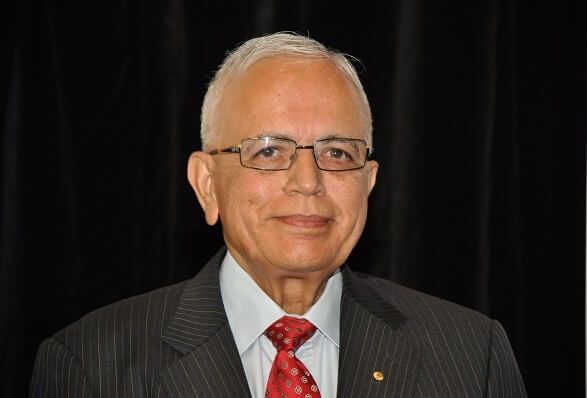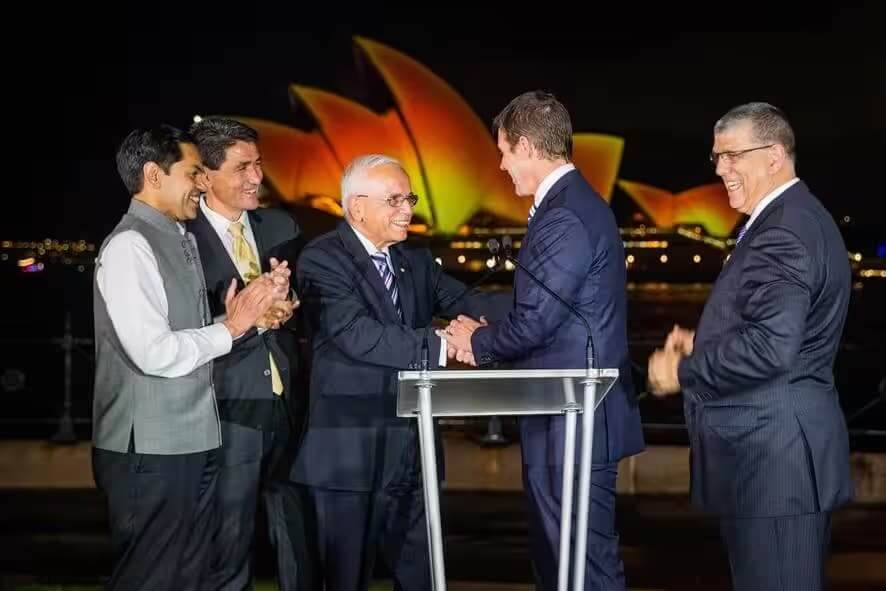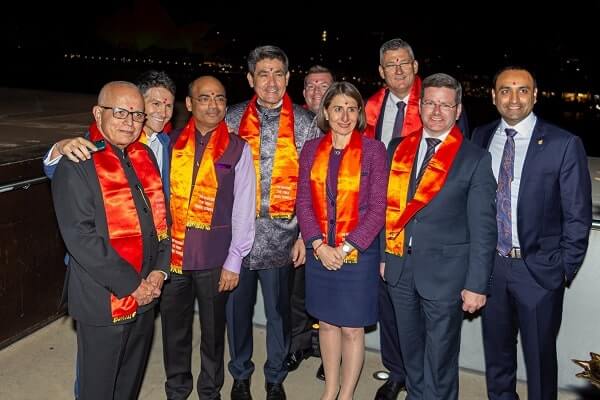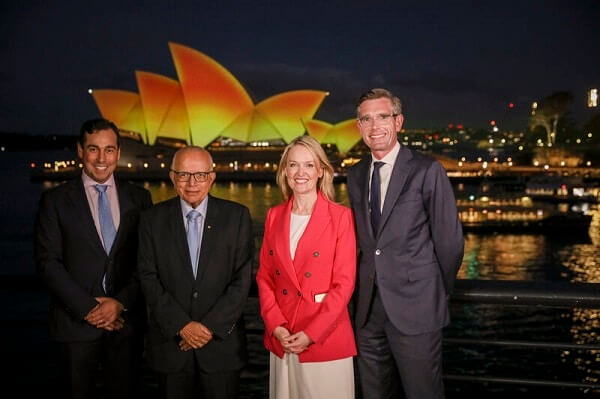Some three hundred people came out to farewell much-loved community figure Dr Harry Harinath on 23 November.
Doctor, cricket administrator, head of Multicultural NSW, mentor to many and friend to even more, Dr Harinath breathed his last on 18 November, having been diagnosed with cancer just over a year ago. He was 79 years old.
Among those present at the final farewell, besides family, were three former NSW Ministers for Multiculturalism, a bevy of politicians and administrators, former NSW and Australian cricketers, colleagues in the medical fraternity, and friends from Sydney’s Indian community.
Speakers who paid their respects on the occasion spoke about their particular brand of friendship with Dr Harinath, or Dr Harry as he was known. Each had a different story to tell, but together they painted a story of an unassuming medical student who dishwashed his way through University in the 1970s, to someone whose passion for cricket was so great that he rose from the position of team doctor of the local club to become the CEO of Cricket NSW, and then a board member of Cricket Australia, the first Indian-origin person to do so.
His contributions to the community did not stop there. He became the CEO initially and then the Chair of Multicultural NSW, a post which in his tenure made NSW a vibrant and exciting multicultural community, an envy of modern cities the world over. He continued to serve as Chairperson Emeritus of the Multicultural NSW Advisory Board after he stepped down as Chairperson in 2022, a position he had held for eight years.
His work, both in cricket and in multiculturalism, has been substantial, even described as ‘seismic’.
NSW Premier Chris Minns said in a message, “As the esteemed Chairperson of Multicultural NSW, as well as Cricket NSW, Dr Harinath’s influence and leadership roles reflect a life dedicated to service. His remarkable contribution to multicultural communities in NSW stands unparalleled.”
Joseph La Posta, Chair of Multicultural NSW said, “As a person, Dr Harinath was a generous, warm and humble leader and a long-time mentor to me, as well as to many people in the community.”
Neil Maxwell, Chairman of SCG Cricket and the Sydney Cricket Club, announced on the occasion that in recognition of Dr Harry Harinath’s contribution to NSW cricket, the annual Multicultural Cup will now be known as the ‘Dr GK Harinath Cup’. This year, 42 teams from 24 nations in NSW will be participating.
Among Dr Harry’s decorations already are an OAM (2009) from the Australian Government and a Pravasi Bharatiya Samman (2017) from the Indian Government.
Making Australia home
Gorur Krishna Harinath arrived in Australia in 1971, armed with an MBBS from Osmania University. When he was 11, he would often say that he wanted to be a doctor. He worked towards a Diploma in Tropical Medicine and Hygiene here and got his first job in Devonport, Tasmania.
A chance meeting in Sydney with Fred Bennett, Chairman of the Australian Cricket Board, got him into cricket, albeit circuitously.
“Come along to Balmain Cricket Club on the weekends and help out with medical issues,” Bennett had said, setting Dr Harry off on his cricket trajectory.
Perhaps it was cricket that helped him break down glass ceilings.
Yet he said more than once, “If you’ve got it, you will make it. Australian society is very open.”
His affection for Australia ran deep, and he was passionate about creating harmony in a society that was far more diverse than the one in which he had arrived.
“Cultural harmony is not about what the government can do; it’s about what each one of us can do,” he once told this masthead.
And he should know. As a Tamilian who was born and brought up in Hyderabad, he married a Bangalorean, raised his kids in Australia, warmly welcomed an Aussie son-in-law and an Aussie daughter-in-law, and became head of a wonderfully close-knit multicultural family.
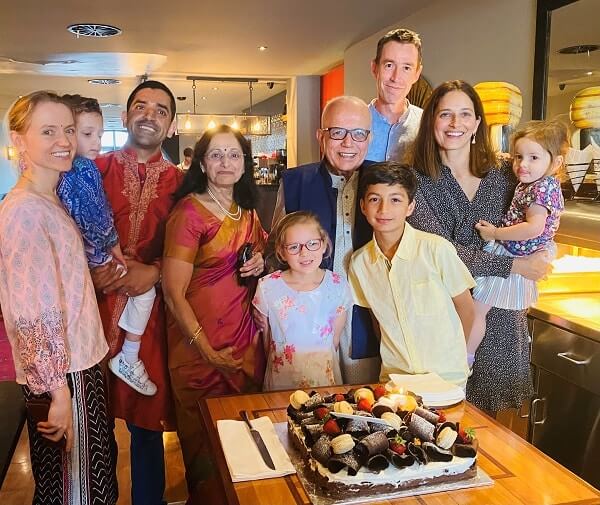
Wife Gayatri, and children Neeta and John Callagher and Vikram and Jackie Harinath were by his side when the end came.
Dr Harry Harinath: Community tributes
In the last week, the news of Dr Harry’s passing sent shock waves through the community. In characteristic style, he had kept his illness a close secret amongst family and friends.
Up to a fortnight before his death, he had continued working in his medical practice, seeing patients as he laboured through chemo himself. He continued to be on the ball about all his passions – Australian politics, Indian politics, the cricket scene, and community affairs.
There was one thing different though; he would steer the conversation away from himself.
“I’m well,” he would say simply when asked, and then quickly deflect with, “So what have the kids been up to,” or something similar.
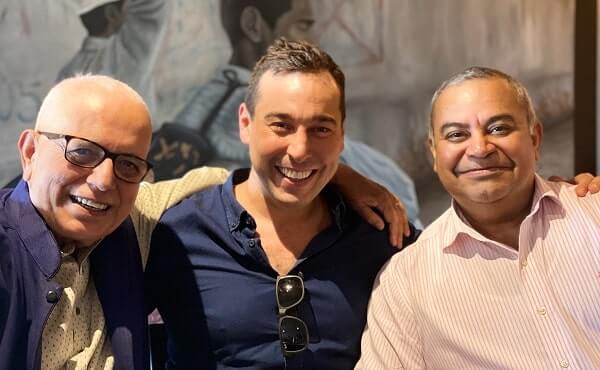
Social media has been awash with deeply personal notes of grief and loss, showing not only the great regard in which Dr Harry was held, but also the close personal relationships he was able to build across industries, and age, faith and cultural groups.
He could come from a meeting with the Premier of NSW or a top minister, and then get down to work quietly in his medical practice.
He knew all about my family and always inquired after the children.
He had a knack for getting things done: when he had the vision to change the waste dump in Sydney’s Inner West suburb of St Peters to a magnificent cricket ground, he was quietly able to raise millions to make it happen.
He was a great mentor; he taught me about ‘the power of silence’ i.e., the art of keeping quiet and allowing the other party to fill in the blanks and complete the negotiations.
He was ready to meet with me whenever I felt confused and help me rationalise my thoughts.
He always spoke to me in Hyderabadi, the lingo of his and my hometown, and this made our relationship very special.
He always had time for me.

The quality of Dr Harry’s relationships was such, that everyone believed they each shared a unique bond with him. In most instances, this was likely true.
His inherent humility and gentle manner were defining qualities. He was a quiet operator. And a deep connector. Connecting with people was his greatest skill – in turn, making connections for people, and opening doors.
Former Chairman of the Sydney Cricket Club Neil Maxwell, long-time friend, said at the service, “His quiet nature had the ability to move mountains.”
Many in the Indian community here in NSW will perhaps never know of the doors he opened and the mountains he moved for them.
Only days before he passed, dozens of Diwali Fairs had lit up various parts of Sydney. These had delighted thousands of new migrants from South Asia – who will never know of the part Dr Harry Harinath played in making these multicultural celebrations possible.
And that’s exactly the way he would have wanted it.
READ ALSO: A golden Diwali at the Opera House



